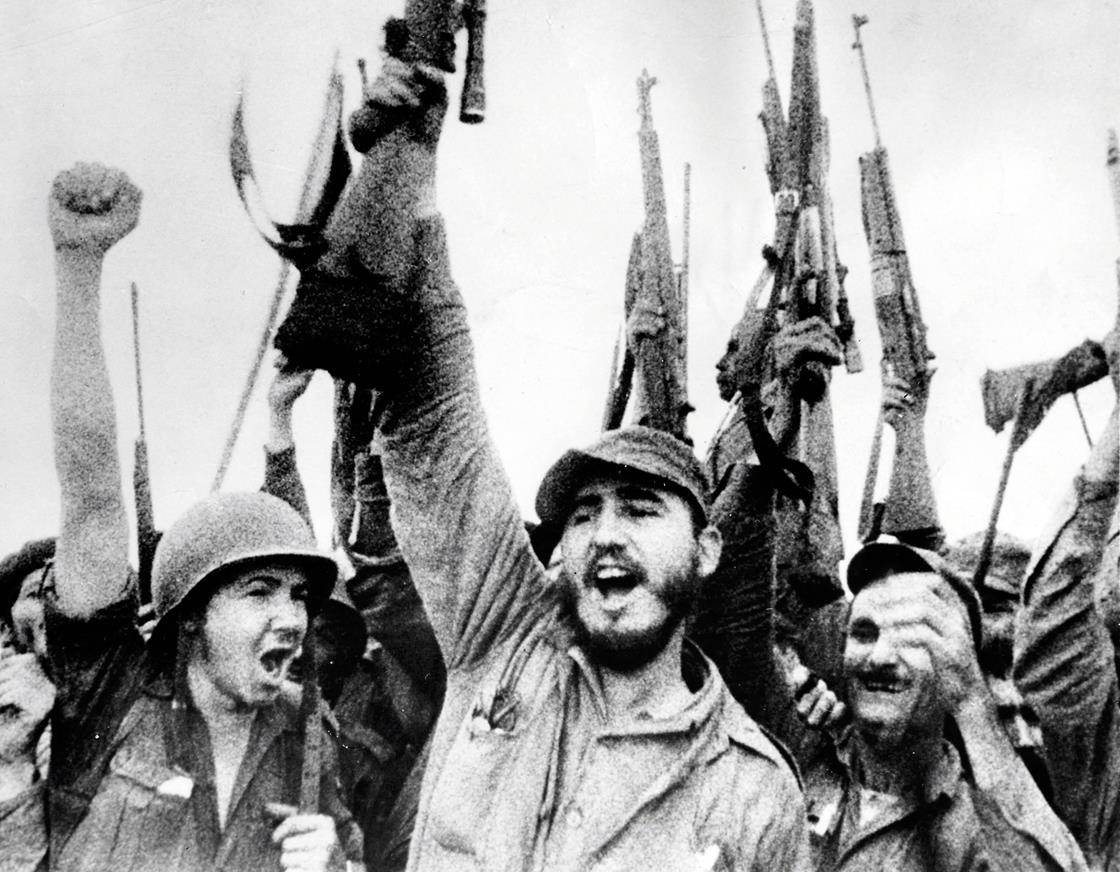
To his critics, he was a brutal dictator, opponent of free speech, and a man determined to preserve his monopoly of power whatever the cost. To his sympathizers, the late Fidel Castro was a benevolent absolutist who ushered in an era of social progress in Cuba, fought for sovereignty, and liberated colonial states. Whichever interpretation is more valid, Fidel Castro was irrefutably one of the most influential figures in the last half century.
The death of this larger-than-life character, who passed on Friday, November 25th, has evoked a variety of reactions depending who you ask. While I do not intend to praise or condemn his 50-year-long career, I will attempt to illustrate why a dictator of a tiny Caribbean island nation is being mourned across the globe.
His story begins in 1956, 60 years ago to the very day he died, when he, Raul Castro, Che Guevara, and 80 others in his group of revolutionaries left Mexico and embarked on what would become the Cuban Revolution. Their aim was simple; liberate the people of Cuba from the imperialist American-sponsored Cuban dictator Fulgencio Batista. The revolution was successful, with Castro assuming power from 1961 and running the country for 50 years.
American news networks contend that Castro will go down in history as a brutal dictator, who forcefully took power and constructed a repressive state. In many ways, this is not inaccurate. He did renege on his promises of free elections and executed thousands of opponents during a time of war. He did implement a secret police force. He did imprison many in the queer community. This is uncontested, as his iron rule was illustrated in the mass exodus of Cubans to Miami in the second half of the 20th century. These are indeed horrific atrocities that will never be forgiven or forgotten.
However, to reduce him to this caricature is to omit everything else he had achieved in his career. What right wing pundits forget to mention is that upon attaining power, Castro immediately instituted massive reforms in education and healthcare that would mature into some of the most sophisticated and enviable systems in the western hemisphere (even surpassing the US and Canada at times). In the face of crippling sanctions, embargos, and isolation, Castro’s Cuba became a hallmark of social engineering in the developing world.
These reconfigurations of social services lead to Cuba becoming a world-renowned exporter of professional medical staff. During Castro’s reign, he deployed 42,000 medical professionals internationally to collaborate with over 103 different countries. This has included sending 400 doctors on a relief mission during Ebola pandemics in West Africa, offering medical staff to support initiatives in post-Hurricane Katrina New Orleans (which George W. Bush denied), and all over continental Africa and Latin America in the wave of independence (1960-80).
His acrimony towards Yankee imperialism earned him the respect of anti-colonial leaders around the globe, and particularly resonated among Latin American and African states, who at the time had few political allies. His belligerence towards imperialists resonated among those living in the proxy zones of the Cold War.
His principles went beyond the ideological standoff between the left and right. His troops were not simply mercenaries for the Soviets. Castro intervened against imperialists largely out of his own convictions, not at Moscow’s bidding.
He became inundated with requests for military and social abutment from leaders of the postcolonial world, many of whom he obliged. He supported emerging African states by sending soldiers, doctors, and teachers at time when post-colonial Africa was most vulnerable.
In 1988, for instance, Castro extended 36,000 Cuban troops to stave off aggression from the American-backed South African apartheid regime. This earned him the praise of the Nobel Peace Prize winner Nelson Mandela upon his release from prison.
Castro’s soldiers also played a decisive role in beating back Portuguese imperialists in Angola, Guinea-Bissau, Mozambique and Cape Verde, on top of helping other nations like Algeria and Namibia solidify their independence.
Castro would later claim that almost 400,000 Cuban troops served in Africa, “side-by-side with their African brothers for national independence or against foreign aggression.” For these reasons, upon the news of his death, many of the loudest and most unequivocal tributes to him have been voiced by African leaders.
Fidel Castro’s legacy will stay ambiguous. He undoubtedly violated human rights within his own borders. Yet many Cubans appreciate the social security he provided and still mourn his loss today. His foreign policy will be significantly less contested by the bulk of the world. Castro has arguably fought harder than any other leader for the sovereign rights of the most vulnerable states of the global south.
We learn about the black, we learn about the white, and as scholars we begin to understand the grey. One cannot fully understand the Castro legacy without first recognizing the duality of his character. As Barack Obama has gracefully put it, “History will record and judge the enormous impact of this singular figure on the people and world around him.”
